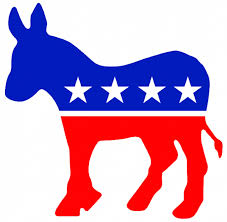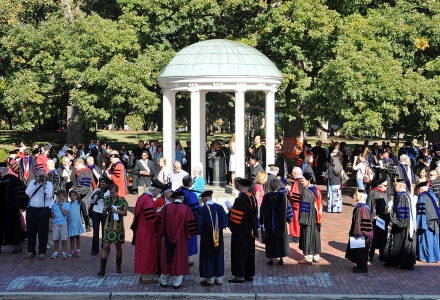The calendar still reads 2015, but already it feels like 2016. Now that Hillary Clinton has joined Republican Senators Ted Cruz, Rand Paul, and Marco Rubio on the official hunt for the White House, the presidential campaign is gearing up. Higher education (mostly student debt) played a small part in the last election, but it may play a larger role in this one. This week, I’m giving advice to candidates in both political parties about issues and ways to talk about higher education. On Monday, I talked about the Republicans. Today, the Democrats are up.

Unlike the Republican candidates, the Democratic candidates have some of a higher education agenda to pick up on from President Obama.
President Obama has had an interesting run in thinking about higher education. He started out pushing accountability and employment outcomes early in the administration when the recession was in full swing. Then, during the 2012 election, he pivoted to talking about financial accessibility and reducing the costs of college. Most recently, he pitched his plan for free community college.
As Democrats begin their primary campaign, the goal will be to adopt some areas of the Obama agenda while setting out some new areas. This is true in many policy arenas, but particularly higher education.
1. Continue supporting the Obama free community college program.
Community colleges are popular institutions with many benefits for students and the community. Any Democrat will want to push access to college. Picking up on the themes from the President’s proposal, candidates would be smart to continue the push for opening up community colleges. The issue should be popular with the base while also allowing easy comparisons with Republicans looking to cut funding to government services. If you’re going to have a fight about the role of government, opening up community colleges to everyone isn’t a bad place to start.
2. Fight for the Dream Act and access to college for undocumented students.
One of the tremendous structural advantages for Democrats is how well the party does with minority voters. The growing Hispanic population only makes this voting group even more important in 2016. With two major candidates from Florida, the Republicans are poised to try to make a dent in this group. Democratic candidates must continue pushing for the Dream Act and providing access to college for all students, regardless of immigration status. This is an easy issue for Democrats to get behind and plays right to their strengths.
3. Make a case for reversing the Innovation Deficit.
The Obama administration has often struggled with making the case for why spending cuts are not good for the country. In the fight over sequestration, the administration had a hard time arguing why cutting federal research and other higher education related services were so potentially damaging. If there is Democratic president after Obama, they must fight to reverse the damaging effects of the Innovation Deficit, the slow reduction of investment in critical research and development to ensure our country’s ability to innovate, imagine, and create the next great ideas.
4. Embrace Elizabeth Warren’s attacks on student lending policies..
Elizabeth Warren represents an increasingly important wing of the Democratic Party. Some of the most devastatingly effective arguments that she has been making critiquing current federal policy have been in the area of student loans and lending practices. She has identified a number of key areas were reform is desperately needed. Support of the Warren wing is critical for any candidate which means this suggestion makes good policy and political sense.
5. Dial back on the Obama/Duncan critiques of higher education.
President Obama and his Secretary of Education Arne Duncan have been frequent critics of higher education. In many ways, the rhetoric from them hasn’t been much different from the Bush administration and Secretary Margaret Spellings. I would recommend Democratic candidates back off on this rhetoric as it is not helpful to higher education or their own agenda. Since the President’s crack about art history majors, I’ve been concerned about the way the administration has talked about higher education overly emphasizes aspects that diminish many of the non-vocational missions of higher education. Scaling this back would better position the next candidate to pick up support that President Obama has lost in some higher education policy circles.
Education issues have long been a hallmark of Democratic politics. Higher education presents a continuing opportunity for Democratic candidates to argue against Republican (and Tea Party) policies and reassert the role of the federal government and higher education in reducing poverty, improving educational outcomes, and helping our economy.





